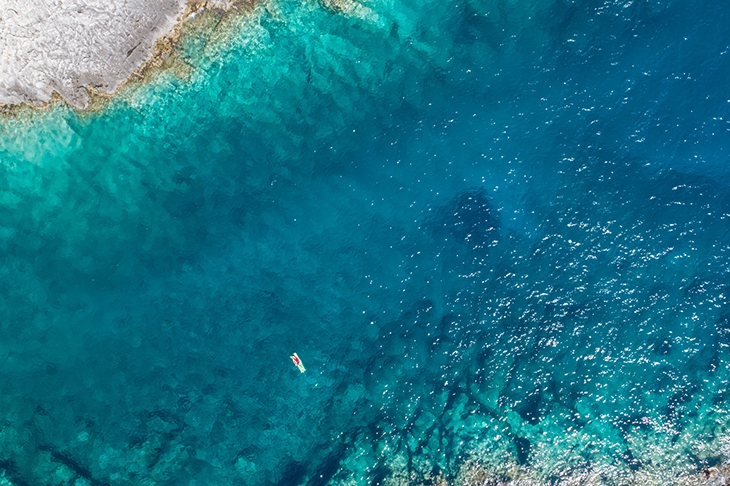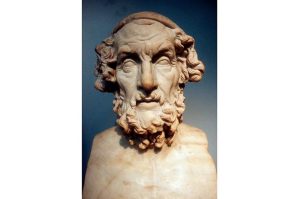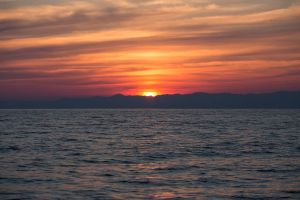Patmos
Two hundred years ago last March, the Greeks rose up against the hated Turks who had occupied most of the mainland for 400 years and, with the help of Britain, France and Russia, drove the infidels back to where they had come from. The war ended with the London Protocol of 1830, which recognized the creation of the independent nation-state called Greece. Hellas, as we call her, became the first independent nation in the Balkans and the first to break away from the Ottoman Empire. The Society of Friends, which had been founded in 1814 outside Greece and included members of my family, had established the groundwork for the uprising. The seed was the American Revolution, followed by the French one. Greece chose to bind herself with free countries, especially Britain, although Germany became the country Greek elites went to study.
Two hundred years later and the American progenitors of freedom are viewed by the elite as criminals, their statues brought down, their names besmirched, their sacrifices ridiculed. The British are not far behind in committing historical seppuku, with Soviet-style denunciations being the core of wokeism. Forgetting for a moment the falsehoods peddled by woke creeps, it’s their moral certitude and absence of self-doubt that is so outrageous. Mind you, although I haven’t exactly conducted a poll, I don’t think there is a single Patmian, local or visiting, who believes that the modern conception of freedom means men in drag should be reading to children about the joys of being trans.
Never mind. The Ancient Greeks understood very well that people are only free when one man rules, not when many rule, as did the British and later the Americans. Stalin and Hitler put an end to that, but the essence of rule and freedom is still the same. The mobs that terrify and tear down statues pose as rulers in the name of the ‘people’, but in reality they are annoying insects in the wind.
Who would have imagined when the Berlin Wall and the Iron Curtain came down, that 30 years later the American national anthem would be anathema to many natives and booed by crowds in football stadiums? Here in Greece it would take a very foolhardy person to boo the flag. We have fought for independence and freedom against all odds throughout. We fight like hell among ourselves but the nation and its symbols are sacrosanct. My uncle, Nikita Varvitsiotis, was a tall, proud Spartan MP, elected with Stalin-like numbers throughout his political career. He was known for standing up in parliament and in a booming voice charging left-wingers of being Bulgarians, in other words traitors to the mother country. His daughter, my first cousin Fifi, is a true Spartan, both father and mother, and is my favorite. I loved Nikita because he was a Spartan of old, very brave, patriotic, responsible and, most of all, honorable.
Lolling about on the beach gives one plenty of time to think, and swimming in the cleanest and clearest water puts things into perspective. For example, America used to be the answer, but has become the problem. Her past heroes are seen as villains, public intellectuals are now inferior to fashion influencers, and moronic blowhards blather about pronouns night and day on television. I sure am glad to be far away from all that jazz. Talking to locals and visitors here might not be as rigorously mind-expanding as a debate at the Oxford Union, but what comes through is that diversity of faith and race leads to irreconcilable, clashing opinions. Basically, being woke means obsessing about race, gender and sexual orientation, maybe climate change, too. Here in Patmos, if you raised any of these subjects you would be confronted with the kind of looks Xerxes’s emissary received from the 300 Spartans when he demanded they lay down their arms.
The other night I gave a party attended by the young and then went on to the Piazza where I held court until 4 a.m. I think I downed about six triple vodkas, having stuck to wine at dinner. The next day, feeling like death, the whole family went sailing on a friend’s boat. We sailed north by northeast until we came to a bay last inhabited by some Italian soldiers who had jumped ship during the war. The good thing about uninhabitable islands is there are none of these annoying warnings about swimming, stripping, peeing, kissing, what have you.
I thought of the suckers on the Long Island highway baking in their cars while inching ever so slowly forward in order to reach the gray Atlantic. Once there, having to take cover while young Wall Street scions race their dune buggies around and sometimes over prostrate humanity. Lifeguards blow whistles and warn people non-stop not to swim out too far. Shore police check license plates and village permits for parking. Cars are towed from 8 a.m. to nightfall. Swimming off my friend’s beautiful boat, I looked around and almost felt sorry for the suckers back in the Hamptons.
This article was originally published in The Spectator’s UK magazine. Subscribe to the World edition here.


















